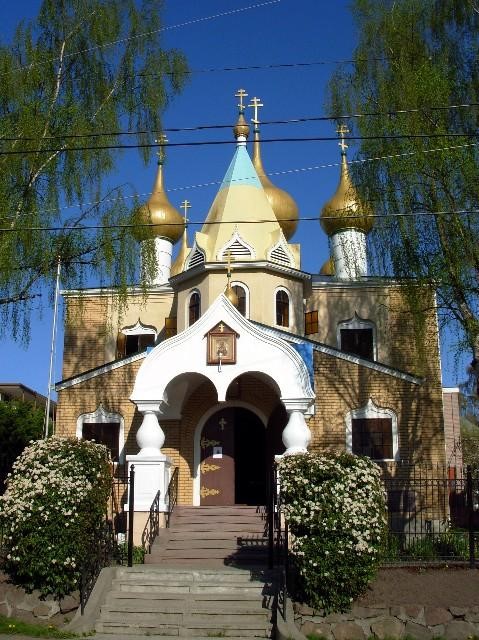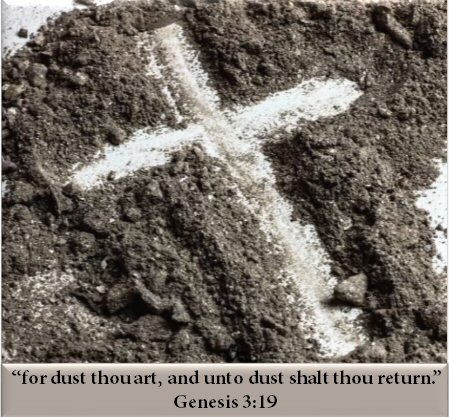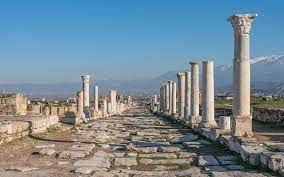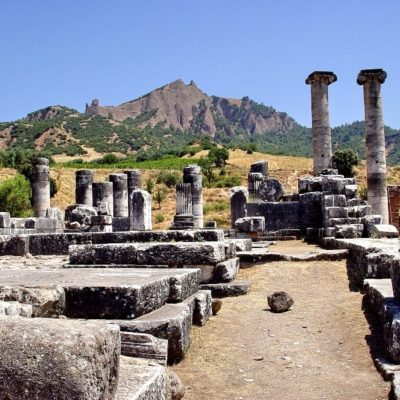Russian Orthodox Church Outside of Russia (ROCOR)

Russian Orthodox Church Outside Russia has its headquarters in New York City, New York. The male controlled headquarters is in Moscow, Russia. The founder is Anthony (Khrapovitsky), Anastassy (Gribanovsky) and others. They gained their independence in 1920. They are semi-self-governing.
The Russian Orthodox Church Outside of Russia (ROCOR) was formed as an influence of the Eastern Orthodoxy. This was a reaction against the policy of Bolsheviks had to religion in the Soviet Union after the Russian Revolution of 1917. They separated from the Russian Church of the Moscow Patriarchate in 1927. The Russian Orthodox Church Outside of Russia officially signed the Act of Canonical Communion with the Moscow Patriarchate on May 17, 2007. This restored the canonical link between the churches.
History:
The Revolution of 1917, the Bolshevik coup upset the unity of the Russian Church. The political shifts of power, civil war, the severing of contact with the far reaches of the empire, the loss of Russian territories and, finally, the emigration, all this tore a portion of the Russian people away from the ecclesiastical centers.
Patriarch Tikhon was the head of the Russian Church, the Ruling Bishop of the North American Diocese. He understood the danger of the separation of dioceses from Moscow. A group of bishops found themselves in Constantinople, having been exiled from Russia together with military and civil populations in 1920.
They convened a Council of Russian bishops in the diaspora, and formed the Higher Ecclesiastical Authority Abroad. The Council in Constantinople chose as its leader Metropolitan Anthony of Kiev and Volyn’, the eldest hierarch of the Russian Church. The all-Diaspora Council provoked the strong disapproval of the Soviet government, which then requested of Patriarch Tikhon the suspension of the activities of the clergy abroad. Under this pressure, the Patriarch, in 1922, was obliged to issue an order decreeing the shutting down of the Supreme Church Authority Abroad. A few days later, the Patriarch was arrested.
It is worth noting that the Synod Abroad informed Patriarch Tikhon of its activities, and the Patriarch imposed no other suspensions on the bishops abroad despite the insistence of the Bolsheviks. Patriarch Tikhon believed the activities of the clergy abroad as genuine and in accordance with the interests of the Church.
The Metropolitan Platon declared on behalf of the “Holy Synod of the American Orthodox Catholic Church” the establishment of an independent American Church. The English language was introduced, gathering Orthodox people in North America. in 1927. When Metropolitan Platon departed it evoked discord and schism in North America. The Synod sent Archbishop Apollinarii to North America to head the parishes that remained faithful to the Synod Abroad, in 1927, Metropolitan Platon suggested to Archbishop Apollinarii that he refuse to submit to the Synod Abroad and without a court proceeding, suspended him from his clerical duties. The Synod Abroad, considered these acts uncanonical and dismissed Metropolitan Platon from heading the North American Diocese, shifted it to the authority of Archbishop Apollinarii.
Then Metropolitan Eulogius left the Synod abroad, and assumed authority as the first bishop among 19 other bishops who were in the diaspora. The Synod Abroad then decided to take the German Diocese from Metropolitan Eulogius’ control and appointed Bishop Tikhon. It was after a seven-month controversy, the Synod Abroad, in January 1927, removed Metropolitan Eulogius from the administration of the Diocese and subjected him to ecclesiastical tribunal.
Since 1946, the primary crucial needs of the Russian Diaspora were:
1. The spiritual nourishment of Orthodox emigrants who found themselves homeless.
2. Tending to the thousands of Orthodox refugees who flooded Germany from Poland, the Baltics and the USSR along with their bishops and clergymen.
3. The protection of the same from the possible forced repatriation into Soviet Russia and persecution by the godless state.
4. The further settlement of their lives in the emigration.
It was from 1946-49, the Synod Abroad directed their efforts toward these goals. A Resettlement Committee was organized under the Synod, which worked to obtain visas for countries across the Atlantic. But while plans were being formulated for moving, the Church Abroad needed to take care of the spiritual ministry to Orthodox Russians in refugee camps in Germany, Austria and Italy.
The Soviet who were non-returners and their families were threatened with forced deportation to the USSR, there imprisonment in concentration camps awaited them. It was at the end of 1950, when the main bulk of refugees already resettled across the ocean, Metropolitan Anastassy, together with the Miracle-working Kursk-Root Icon of the Mother of God, flew to North America, where New York became the new headquarters of the Church Abroad.
It should be emphasized that for the 50 years of its existence, the Russian Orthodox Church Outside of Russia remained true to its original goals. It is true that over this time, political passions ran rampant, the struggle for ecclesiastical power continued, there were schisms and moral compromises of different hierarchs and entire dioceses abroad.
Belief:
The Russian Orthodox Church Outside of Russia believes in One God, God the Father, the Pantocrator, Creator of Heaven and Earth, and all things seen and unseen.
The Russian Orthodox Church Outside of Russia believes in one Lord, Jesus Christ, the Only-Begotten Son of God, Begotten of the Father before all ages. Light of Light, True God of True God, begotten not created; of One Essence with the Father; by whom all things were made; Who for us men and for our salvation, came down from heaven, and was incarnate of the Holy Spirit and of the Holy Theotokos, and became Man.
The Russian Orthodox Church Outside of Russia believes He was crucified for us under Pontius Pilate; suffered and was buried; and on the third day He rose from the dead, according to the Scriptures; ascended to the heavens; He sits at the right hand of His Father; and He is coming again in His glory to judge the living and the dead; Whose Kingdom shall have no end.
The Russian Orthodox Church Outside of Russia believes in the Holy Spirit, the Lord, the Giver of Life, Who proceeds from the Father, Who, with the Father and the Son, is worshipped and glorified; Who spoke by the prophets and in One, Holy, Catholic and Apostolic Church, we confess one baptism for the remission of sins. We look for the resurrection of the dead, and the life of the coming age.
The Russian Orthodox Church Outside of Russia believes their common Orthodox belief in their Lord and Savior Jesus Christ and upon our faithfulness to the common canonical Tradition of the Russian Orthodox Church, and acting in accordance with the instructions formulated over the course of the discussions held under the chairmanship of His Holiness Patriarch Alexy of Moscow and All Russia in Moscow on May 17-18, 2004.
The Russian Orthodox Church Outside of Russia believes the documents of individual hierarchs and organs of ecclesiastical authority issued in the period of the Church under conditions of totalitarian rule antagonistic to the Church both in the Fatherland and abroad which do not express the true voice of the Church of Christ are deemed no longer valid or not in effect. Having been dictated by extreme circumstances, they cannot be viewed as possessing the ecclesiastical norm. Among the documents recognized as such are, for instance, “Epistle to the Clergy and Flock” (the so-called “Declaration”) of 1927 and the Paschal Epistle of the First Hierarch of the Russian Orthodox Church Outside of Russia of 1942.
Reference:
Official website: http://www.russianorthodoxchurch.ws/synod/indexeng.htm
Cite Article Source
MLA Style Citation:
Holstein, Joanne “Russian Orthodox Church Outside of Russia (ROCOR):.” Becker Bible Studies Library Sept 2013.< https://guidedbiblestudies.com/?p=2468,>.
APA Style Citation:
Holstein, Joanne (2013, September) “Russian Orthodox Church Outside of Russia (ROCOR):.” Becker Bible Studies Library. Retrieved from https://guidedbiblestudies.com/?p=2468,.
Chicago Style Citation:
Holstein, Joanne (2013) “Russian Orthodox Church Outside of Russia (ROCOR):.” Becker Bible Studies Library (September), https://guidedbiblestudies.com/?p=2468, (accessed).


